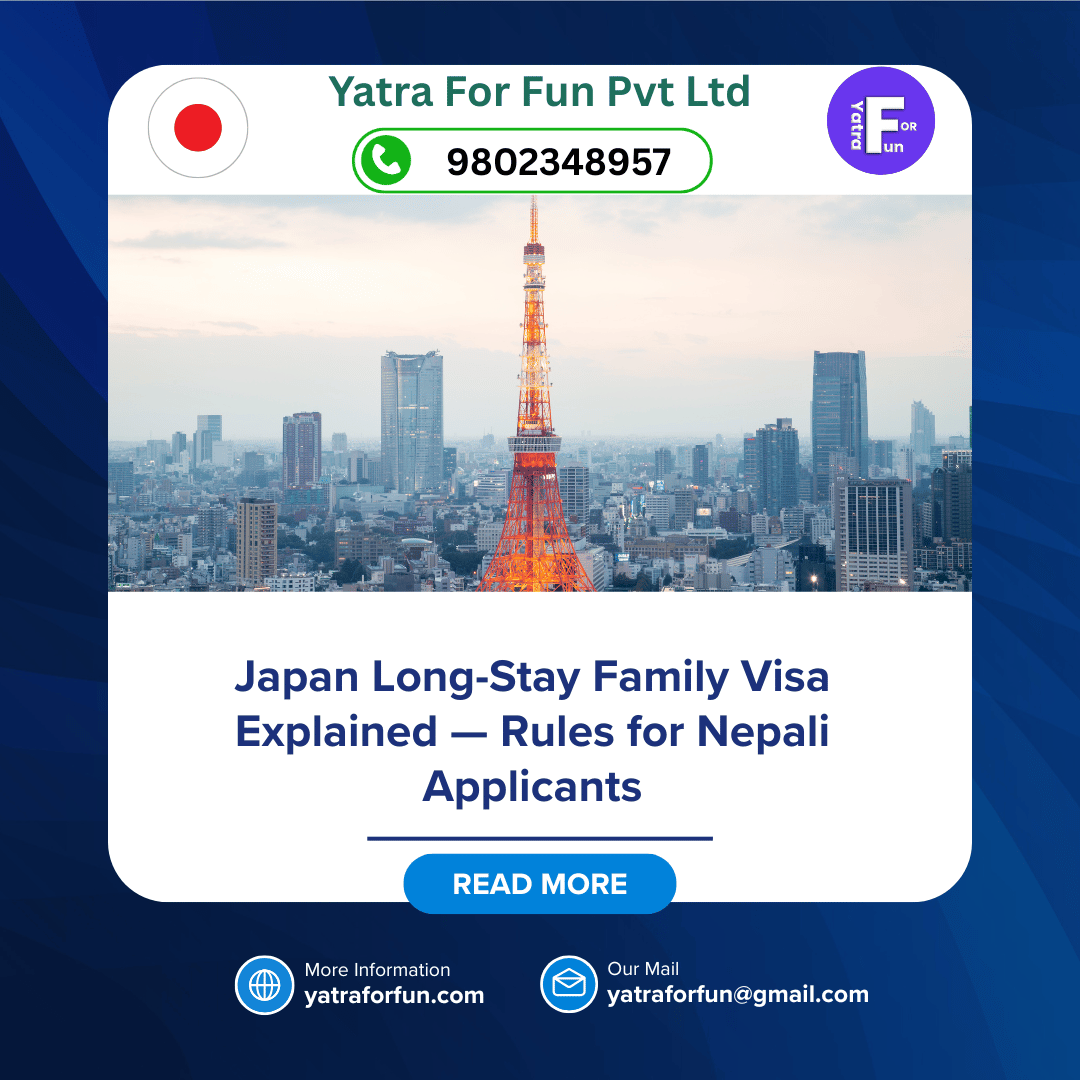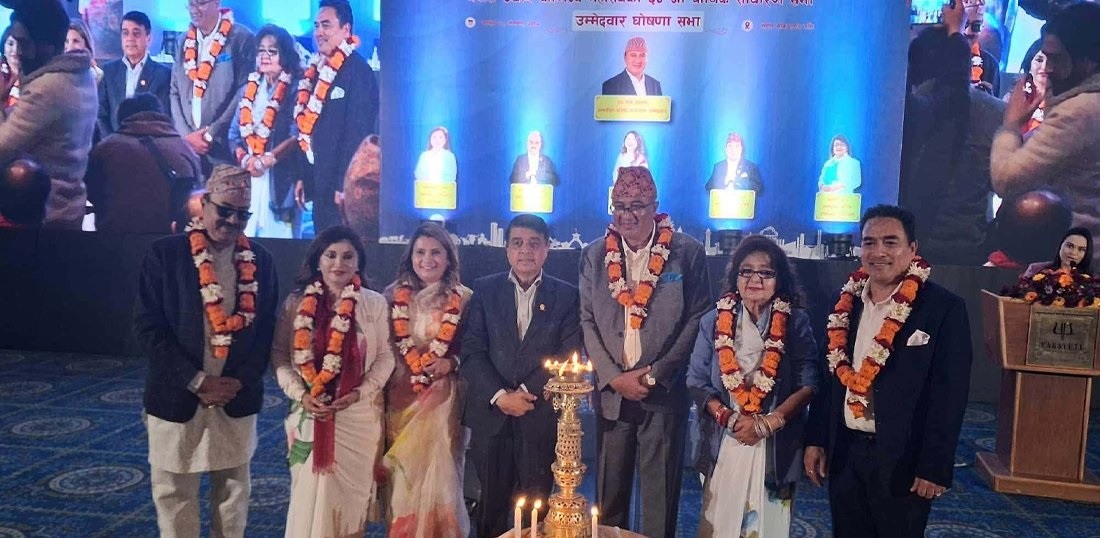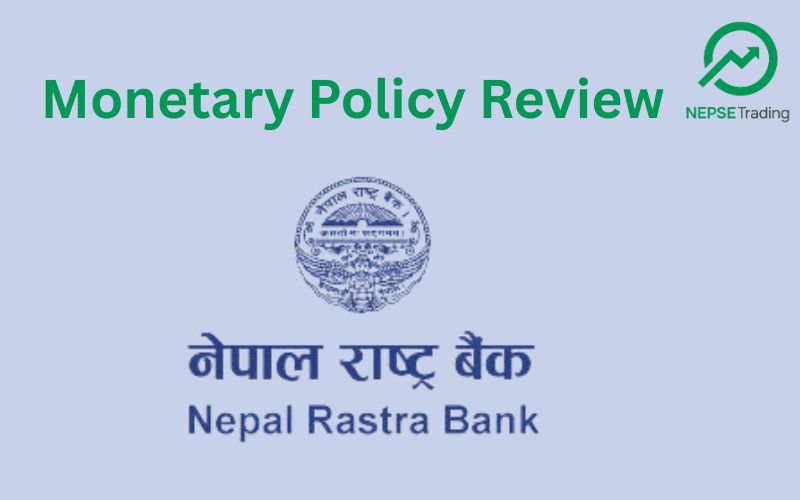By Sandeep Chaudhary
Japan Long-Stay Family Visa Explained — Rules for Nepali Applicants

The Japan Long-Stay Family Visa, commonly known as the Dependent Visa (家族滞在 / Kazoku Taizai), allows Nepali citizens to live in Japan with their family members who are already legally residing there under a long-term status — such as work, study, or permanent residence. This visa is ideal for the spouse and children of a foreign national staying in Japan and provides a legal way for family members to reunite for an extended period, usually one to five years.
Under Japanese immigration law, only immediate family members (husband, wife, and children) qualify for this visa. Parents, siblings, or relatives cannot apply unless under very special humanitarian conditions. The family member already in Japan acts as the sponsor, and they must hold a valid status such as Engineer, Skilled Labor, Researcher, Student, or Permanent Resident. The sponsor’s financial capability plays a vital role; they must provide income tax documents, employment verification, and residence certificates to prove that they can support dependents without relying on public aid.
The application process begins with obtaining a Certificate of Eligibility (COE) from the Japanese Immigration Bureau. The sponsor in Japan applies for the COE on behalf of their spouse or children, submitting documents such as residence cards, tax records, proof of employment, residence certificates (Juminhyo), and relationship proofs like marriage or birth certificates. Once the COE is approved, it is sent to Nepal. The applicant then submits their visa application at the Embassy of Japan or VFS Japan Visa Centre (Chhaya Center, Thamel, Kathmandu). Required documents include a valid passport, completed visa application form, photograph (45×35 mm), COE copy, and proof of family relationship. All documents in Nepali must be translated into English or Japanese before submission.
After the application is submitted, the processing time usually ranges from 5 to 7 working days. Once approved, the passport is returned with a Dependent Visa sticker, which allows long-term residence in Japan. Upon arrival at airports like Narita, Haneda, or Kansai, the Immigration Office issues a Residence Card (Zairyu Card). Within 14 days of moving into a Japanese address, the dependent must register their residence at the local municipal office. While dependents cannot work full-time under this visa category, they can apply for “Permission to Engage in Activities Other Than Those Permitted”, which allows up to 28 hours of part-time work per week.
The Long-Stay Family Visa can be renewed periodically (usually every 1, 3, or 5 years) as long as the sponsor maintains valid residence status and financial stability. Dependents can live, study, and integrate into Japanese society legally and comfortably under this visa.
For reliable assistance with Japan Long-Stay Family Visa applications, Yatra for Fun Pvt. Ltd., located in Koteshwor-32, Kathmandu, offers professional visa support services. The agency specializes in preparing and translating required documents, coordinating with Japanese sponsors, verifying embassy standards, and ensuring smooth visa processing. Yatra for Fun has helped hundreds of Nepali families reunite in Japan and provides visa guidance for over 70 countries worldwide.
Contact Yatra for Fun Pvt. Ltd. for Japan Visa Assistance:
Office Address: Koteshwor-32, Kathmandu, Nepal
Call / WhatsApp / Viber: +977 9802348957 or +977 9708072951
Website: www.yatraforfun.com
Email: [email protected]
Business Hours: Sunday to Friday, 10:00 AM – 6:00 PM









